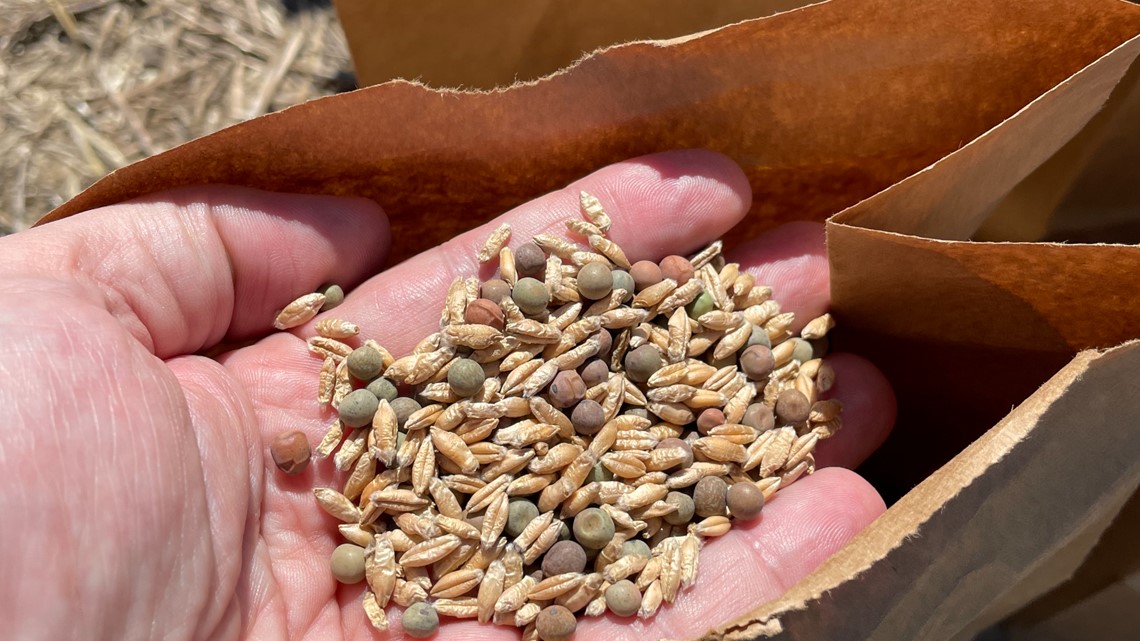How 2 University of Memphis professors are working to reduce Greenhouse Gas Emissions and improve agriculture
The two professors are hoping the research can help farmers across the Mid-South improve their production, and make a cleaner Earth. University of Memphis professors Dr. Shawn Brown and Dr. Jennifer Mandel are working to reduce Greenhouse Gas Emissions and improve agriculture in an effort to improve farmers' production and reduce emissions from agriculture. The research aims to help farmers across the Mid-South improve their production and make a cleaner Earth. Agriculture is a major contributor of greenhouse gas emissions, accounting for around 10 to 11% of all greenhouse gases in the US. The main source of greenhouse gases comes from burning fossil fuels, although the EPA estimates agriculture is responsible for 10 to11% of these emissions. The researchers are also exploring how changes in agriculture can reduce emissions without sacrificing yield.

Published : one year ago by Melisa Cabello Cuahutle in Environment
The two professors are hoping the research can help farmers across the Mid-South improve their production, and make a cleaner Earth.
Agriculture is a major contributor of greenhouse gas emissions, and one known solution for this is to plant cover crops, but what’s not well known is why this happens. To answer this, Dr. Shawn Brown and Dr. Jennifer Mandel from the UofM are joining forces to find out why.
“(The greenhouse gas emissions from agriculture) doesn't get a whole lot of research into it, and how we might mitigate it, the larger part of this work is to try to see if changes in how we farm might help reduce the output of (it) in the atmosphere,” said Brown, who works as associate professor in biological sciences at the University of Memphis.
Greenhouse emissions are a major contributor to global warming. Although in the U.S., the main source of greenhouse gas emissions comes from burning fossil fuels, the United States Environmental Protection Agency (EPA) says agriculture is responsible for 10 to 11% of all greenhouse gas emissions in the economic sector, this includes both planting crops and raising cattle.
This is not a new idea, according to Brown there's been an extensive movement for the last 10 to 15 years to change how farming is done to reduce greenhouse emissions. One of the mechanisms to reduce that is by planting “cover crops.”
“We do this, but we don't really understand how this is actually involved in improving soil health and how this might be involved in reducing greenhouse gas,” said Brown. “This work (tries) to understand how cover crops are playing a role in this and how we might be able to change some strategies where we don't sacrifice yield, so we're not taking money out of farmers mouth or farmers budget, so we can still grow the same amount of soybean, the same amount of cotton, the same amount of corn.”
“If we are able to support our farmers to produce more, that's more money that can go in,” said Brown. “There's certainly a potential economic benefit to this region. We can actually improve yield.”
“It's actually how a lot of cool research gets started, you're just curious about something you're like, ‘Well, let me just ask this question and see what happens,’” said Mandel, who also works as associate professor in the biological sciences department at the University of Memphis. “(That’s why) being a researcher at a university is really nice, because you can kind of pursue where the science takes you.”
Topics: Academia, Climate Change, ESG
